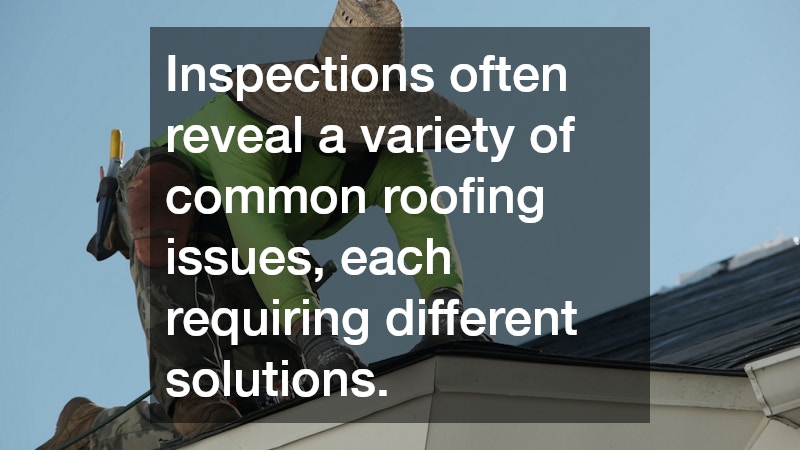Commercial roofing inspections are a crucial component of maintaining the integrity and longevity of any commercial building’s roof. These inspections are designed to assess the current condition of the roof, identify potential issues or weaknesses, and provide guidance on necessary repairs or replacements. Commercial roofers typically conduct these inspections, utilizing their expertise to ensure that all aspects of the roof are thoroughly evaluated.
Understanding the process of a commercial roofing inspection can help business owners and property managers make informed decisions about their roofing maintenance. Regular inspections can prevent minor issues from becoming major problems, saving time and money in the long run.
They are often recommended bi-annually or after significant weather events, offering peace of mind and protection for your investment.
The role of a commercial roofer is not only to carry out repairs but also to employ their expertise in identifying areas of concern during an inspection. Their in-depth knowledge of various roofing materials and systems is imperative for detecting subtle signs of damage or wear. This proactive approach ensures that minor defects are addressed before they escalate into costly repairs.
What Happens During a Commercial Roof Inspection?
A comprehensive commercial roof inspection includes several key steps that help to ensure its thoroughness. First, commercial roofers will perform a visual inspection of both the interior and exterior parts of the roof. This initial step is critical for identifying visible damage, water stains, mold, or any signs of leaks that might indicate underlying issues.
Following the visual inspection, commercial roofers utilize advanced tools and technology to examine areas that may not be visible to the naked eye. This might include infrared scanners or moisture detection devices, which can identify leaks or trapped moisture in the roofing material. This technology-driven approach enhances the accuracy of the inspection and ensures no detail is overlooked.
During the inspection, commercial roofers will also evaluate the roof’s drainage system to ensure it is functioning properly. Effective drainage is essential for preventing water accumulation, which can lead to leaks or structural damage. By identifying and addressing drainage issues during an inspection, commercial roofers help prevent future water-related problems that could severely impact the building.
Common Findings and Solutions
Inspections often reveal a variety of common roofing issues, each requiring different solutions. One frequent finding is damaged or missing roofing material, such as shingles or tiles, which can often be attributed to weather exposure or insufficient maintenance. In these cases, commercial roofers may recommend repairs or replacements to restore the roof’s integrity and protect against leaks.
Another common issue discovered during inspections is poorly functioning or clogged gutters. Blockages can prevent water from draining away from the roof, leading to water pooling and potential leaks. To resolve this, commercial roofers usually perform a thorough cleaning of the gutters and may suggest regular maintenance to avoid future blockages.
Finally, inspections may reveal signs of wear or aging in various parts of the roofing system, including flashing and sealants. These materials can deteriorate over time, compromising the roof’s waterproofing ability. Commercial roofers can mitigate these issues by resealing and reinforcing affected areas, effectively extending the roof’s lifespan and functionality.
The Importance of Hiring Professional Commercial Roofers
Hiring professional commercial roofers for inspections is essential to ensure quality and comprehensive evaluations. These experts bring a depth of knowledge and experience to the process, enabling them to identify potential problems that a less experienced individual might overlook. Their trained eyes can discern subtle indicators of damage, ensuring no stone is left unturned during inspections.
Professional commercial roofers are also familiar with the latest materials and technologies in the roofing industry. This expertise allows them to provide informed recommendations on repairs, replacements, or upgrades, which can significantly improve the roof’s performance and durability. Their guidance ensures that any repairs or modifications made to the roof are done with consideration of the best and most modern practices.
Moreover, working with licensed commercial roofers provides peace of mind that the inspection and any subsequent work will be conducted according to industry standards and regulations. This adherence to regulations is crucial for maintaining the building’s safety certification and warranty. Ultimately, their services provide a valuable safeguard for the property and its occupants, ensuring the roof remains in optimal condition.
Regular commercial roof inspections are vital for the health and safety of a building. By proactively identifying potential issues through comprehensive evaluations by commercial roofers, property owners can prevent costly damages and extend the life of their roof. These inspections not only address immediate concerns but also guide future maintenance decisions, ensuring that the roof continues to perform effectively.
Bearing in mind the importance of inspections, it is advised to incorporate them into the regular maintenance schedule of any commercial property. Collaborating with experienced commercial roofers guarantees that inspections are thorough, accurate, and adhere to the highest standards. The investment in routine inspections pays off manifold by averting expensive repairs and ensuring the roof’s integrity.
In conclusion, understanding the mechanics of a commercial roofing inspection and recognizing its benefits empowers property owners and managers to make prudent decisions regarding their roofing systems. Regular engagement with professional commercial roofers is an invaluable part of maintaining the safety and efficiency of commercial buildings. These experts provide the insight and capability needed to uphold the structural integrity and value of the property.


